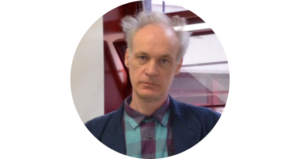
Residency period: August 1, 2015 to July 31, 2016
IEAT resident, Professor Stéphane Denis Albert René Philippe Huchet is a CNPq researcher, with a Productivity Scholarship. Member of the Brazilian Art History Committee. Defended his Thesis for Promotion to the position of Full Professor at the School of Architecture at the Federal University of Minas Gerais in 2015. Post-doctorate in France (under the supervision of Prof. Jean-Marc Poinsot, Université de Haute-Bretagne, Rennes II) on the theme: Documenting art, an investigation into the spaces and supports for presentation, documentation and construction of the memory of art (2008-09). Doctorate in Histoire et Théorie de lart, Formation Formes, Signes, Représentation, Ecole des Hautes Etudes en Sciences Sociales (1990). Master of Arts, Université de Paris I (Panthéon-Sorbonne) (1984). Graduated in Histoire, Université de Haute-Bretagne (1981), in Histoire de l´art et archéologie, Université de Paris IV (Paris-Sorbonne) (1982). He has published the following books: Fragments of a Theory of Art, (Stéphane Huchet, ed.) São Paulo: Edusp, 2012 Space Intentions. The exponential plasticity of art (1900-2000), Belo Horizonte: C/Arte, 2012 Castaño. Situation of Painting, Belo Horizonte: C/Arte, 2006 Le tableau du monde. Une théorie de lart des années 1920, Paris: LHarmattan, 1999. Coordinator of the Postgraduate Nucleus in Architecture and Urbanism at his School in the period 2001-03. Head of the Department of Critical and Historical Analysis of Architecture and Urbanism between 2006/2008 and 2012/2015. He has experience in the field of Arts, with an emphasis on History, Theory and Criticism of the Arts.
AN ADVANCED TRANSDISCIPLINARITY: THE MODERN AND CONTEMPORARY ARTS AGENDA.
The arts are now embedded in a cultural environment that makes them particularly transdisciplinary. Indeed, whether it is painting, sculpture, engraving, photography, cinema, video, performance, scenic arts, multi-media arts, etc., the richness of its elements, the diversity of their repercussions, the plurality of discourses and scientific approaches they raise reveal their condition at the same time advanced and transdisciplinary. In modernity, the evolution of the arts was rapid. The speed of this evolution led to a great complexity of the artistic scenario. The complexity that we noticed in the works and in the production and creation processes was reinforced by the complexity of the questions raised. Thus, although they are fundamental and always an object of experimentation, it is no longer possible to say that art only emphasizes its own processes of production and language. For reasons that need to be presented and, rather, reconstituted, modern and contemporary art is characterized by an immense openness to questions that agitate society, that interest the social, cultural, political condition, etc. of people. The complexification of art, which invented a concrete transdisciplinarity in the 20th century, responds to the complexification of questions and critical and cognitive domains that art is capable of approaching and problematizing. It is the advanced state of the arts and its repercussions in various areas of knowledge, as well as the ability to invent transdisciplinarity in works, that the project presented here aims to deepen. The Residency is expected to contain a sum of reflections likely to be disseminated later through articles, book chapters and, above all, a book.